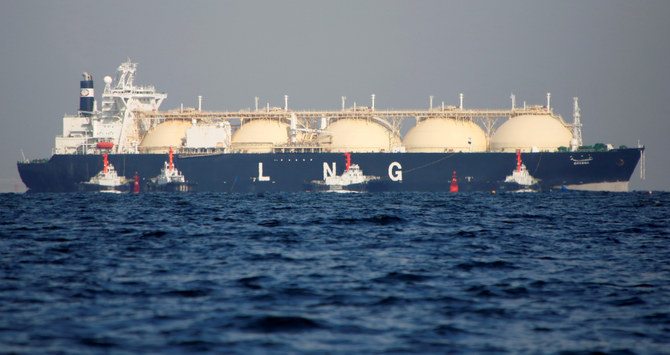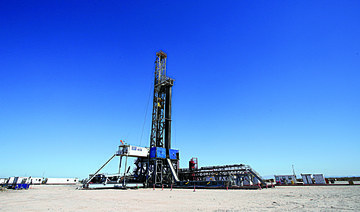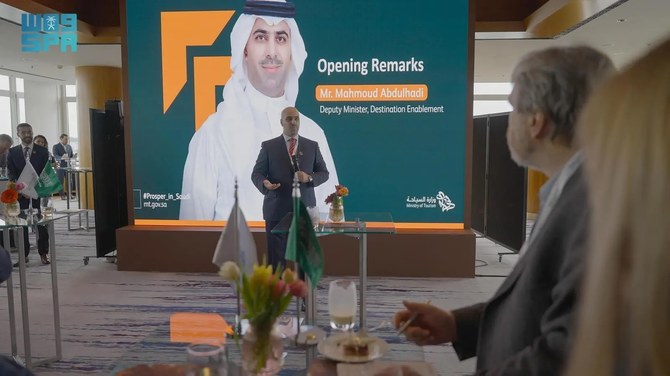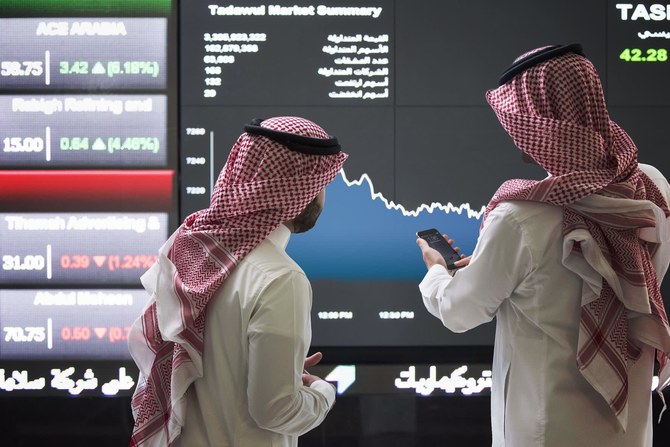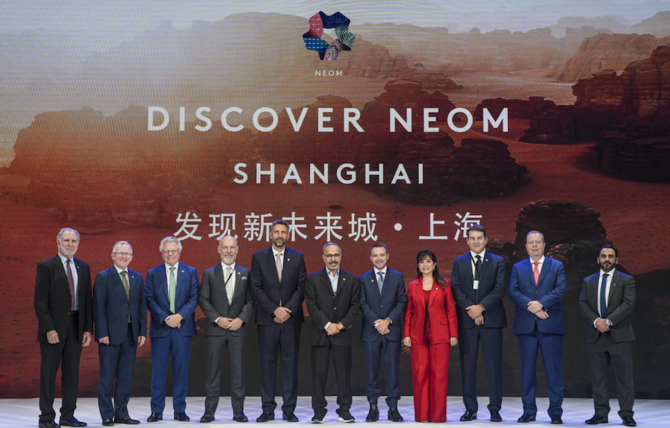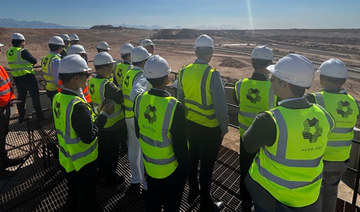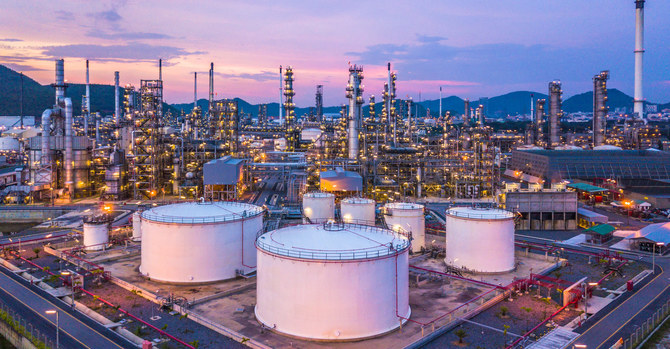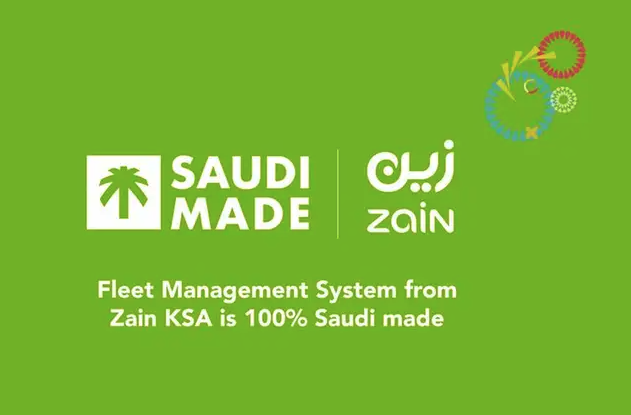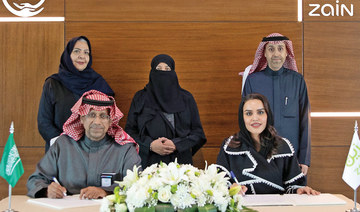LONDON: Almost a month after US crude oil prices collapsed into negative territory for the first time, European gas markets are facing the prospect of also slipping into the red zone themselves, after a slump in overall demand and surging inventories pushed the continent’s gas prices into the low single digits.
Dutch and British gas prices have plunged due to weak demand amid coronavirus lockdowns and strong renewables output, compounding an already oversupplied market with little available storage space left.
In the European benchmark gas market, the Dutch TTF hub, the day-ahead price was down by 20 percent at €2.50 ($2.72) per megawatt hour, equivalent to less than $1 per million British thermal units (mmBtu). Prompt UK prices were up to 30 percent lower.
Some traders are expecting European gas contracts for near-term delivery to go to zero or even turn negative — which could force sellers to give gas away — following a similar move in the West Texas Intermediate (WTI) oil price last month.
“If supply remains this strong until storage is full, we can possibly see negative prices at some point, as there is no sign of relief from the demand side,” a European gas trader said.
“If it will happen today or next week, it’s hard to say. This weekend we have very low demand and strong supply, so weekend prices might go close to negative,” the trader added.
Unlike US crude, UK gas prices have traded negative before, falling below zero in 2006 after the Langeled pipeline from Norway started pumping gas to Britain for the first time. Back then, as now, gas storage sites were at nearly full capacity.
The risk of turning negative is higher for British prompt prices, analysts and traders said, as its only long-term storage site, Rough, closed in 2017.
Production cuts or a major outage, combined with significant increases in demand, will be needed in order to offset oversupply.
“The (UK market) simply doesn’t have as many levers left to pull as continental hubs such as the Dutch,” said Murray Douglas, director of Europe gas at consultancy WoodMackenzie.
“Prices may need to fall to a level that would shut in UK production or lower Norwegian flows even further.”
However, bringing forward shut-ins of gas fields would bring high decommissioning costs, and operators will need to consider the economics of doing that at a time when cash is constrained.
On Friday, the chief executive of Qatar Petroleum, the world’s largest liquefied natural gas (LNG) producer and major exporter to Europe, said that it would not cut its gas exports due to weaker demand.
US Henry Hub gas prices were long seen as a floor for European gas, but Dutch gas has already fallen below those levels.
Gas prices at the US Henry Hub fell to $1.52/mmBtu in March, their lowest levels since August 1995, but have since recovered by around 12 percent.
Storage inventory by the end of June in northwest Europe is forecast at 446 terawatt hours (TWh), just 54 TWh below the total capacity of around 500 TWh, posing a high risk that storage will be full by the end of July, according to Refinitiv analysts.
The severe drop in European prices has also added to the negative sentiment in Asian LNG prices.
After rising for the past two weeks to around $2.40 per mmBtu, the Asian spot LNG price had dropped by the end of this week, with a deal done at $1.85 per mmBtu at S&P Global Platts Market at the close of play on Friday.
Years of weak prices have hurt the bottom line of some gas producers, such as the UK’s Centrica, owner of the country’s biggest energy supplier, British Gas. Some have even been forced to idle gas plants in order to cut costs.
With prices at current levels, they are unable to pass on those costs to consumers.
Profits at Centrica slumped 35 percent last year, hit by a government price cap on some energy bills and the impact of lower natural gas prices on its production business.
Centrica was not immediately available when asked for comment.
“We believe that no gas producer supplying gas to the region is generating positive operating income at these prices,” said Dmitry Loukashov, head of oil and gas research at VTB Capital.



